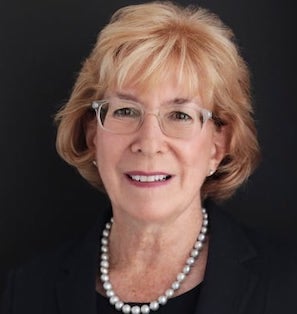Nurses make up the largest sector of health-care professionals in the U.S. at more than 3 million practicing RNs, however, only 1 percent of them hold a doctoral degree. For nurses who want to impact the care of patients, communities and health care as a whole, like University of Rhode Island Professor Mary Sullivan, one of the best ways to do it is by earning a Ph.D.
Other graduate nursing degrees like a Master of Science or a Doctor of Nursing Practice also prepare nurses to work in clinical settings. A Ph.D. in nursing enables those who earn it to expand their roles, whether by conducting research, teaching or working for various health organizations. The Ph.D. nurse develops the science for the profession to improve care and also educates the next generation. The URI College of Nursing offers a Ph.D. program that prepares nurse scholars and researchers to influence nursing practice.
Sullivan earned her Ph.D. from URI and is now one of the instructors in the program. The focus of her research has been examining the developmental outcomes of premature infants. The research is funded by the National Institutes of Health and includes one of the longest studies of its kind, an umbilical cord study that tracks the same cohort from birth to age 23. Students in the nursing Ph.D. program, as well as other nursing students, have assisted with this research, giving them the experience needed to pursue a career in nursing research.
“Students across all levels have been involved; I like to include them because they can learn a lot about the research process and how grants work,” Sullivan said. “And I learn from them, too. The students bring a fresh perspective and sharp questions, which can be helpful to the research process.”
While nurses in clinical settings collaborate with colleagues in other fields of health care, nurses who hold a Ph.D. also collaborate with clinicians as well as scientists in other fields like microbiology, statistics and genetics. This is increasingly important because health-care science is becoming much more interdisciplinary, according to Sullivan and many other professionals.
Unlike the high enrollments in undergraduate nursing programs, universities across the country have seen a flat enrollment of those seeking a Ph.D. The state of Rhode Island is no exception and this, coupled with the fact that there is a large group of baby boomer nurses preparing to retire, the need for Ph.D.-qualified nurses will only increase. A Ph.D. is required for success as a scientist and for the profession of nursing to make a big impact on health care.
The College of Nursing’s Ph.D. program is a collaborator with many of Rhode Island’s health-care systems, along with the Alpert Medical School at Brown University. It is based out of the Nursing Education Center located in the heart of Providence’s emerging knowledge district.
Students who already have a master’s in nursing and enroll in the Ph.D. program usually complete it within four to five years. Sullivan said some have completed it in three years, though she notes that is uncommon.
Besides being an accomplished researcher, Sullivan is also a fellow in the American Academy of Nursing, a member of the American Nurses Association, Rhode Island State Nurses Association, and the Council for Advancement in Nursing Science. She also served as the past president of the Eastern Nursing Research Society.
The classes in the Ph.D program she enjoys teaching the most are NUR 671 Role Development in Nursing Research, and NUR 652 Advanced Methods in Nursing Research II (Quantitative Methods).
“And, of course, I enjoy working with graduate students,” Sullivan said.

